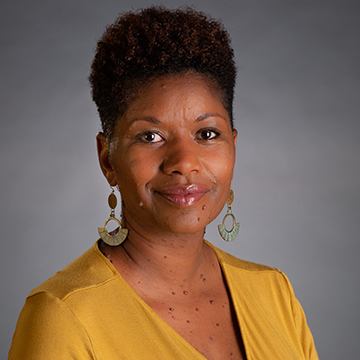Black History Month - From the Steering Committee (Continued)
 Serena Simpson
Serena Simpson
Black History Month has always been a time for celebration for me. I was raised with an immense sense of pride regarding Blackness. At home and throughout my elementary school education, I received constant positive reinforcement about what it meant to be a Black child and what a rich history and culture I come from. I attended a Chicago Public School in the 80s and early 90s, which had a 99% Black enrollment and nearly all Black teaching and administrative staff. Black history was simply history. The American experience was always presented as the Black experience.
We began the school day every morning by reciting the Pledge of Allegiance and singing the first verse of James Weldon Johnson’s Lift Every Voice and Sing. A few teachers even demanded that we sing all three verses. I don’t think I learned the words to the Star-Spangled Banner until sometime in high school. Every child from kindergarten to 8th grade could recite Useni Eugene Perkins's poem “Hey Black Child” on command. While some early learners across the country might have been reading The Boxcar Children Series, we read, recited, and discussed works of Paul Laurence Dunbar, Langston Hughes, Nikki Giovanni, and Maya Angelou as our standard 2nd and 3rd-grade reading curriculum. We read Br’er Rabbit tales a little later and marveled at Books like Virginia Hamilton’s The People Could Fly.
Black scientists, mathematicians, theologians, politicians, artists, etc., were our role models. Posters and placards venerating what would today be called “Black Excellence” were on display everywhere all year. We learned about Marcus Garvey, WEB DuBois, Shirley Chisolm, and Black nationalism with the same reverence as Frederick Douglass. February was a time to amp this up with special programs and events, but we never experienced an acknowledgment of Blackness that wasn’t already happening daily. We heard the same admonishments as I imaged Black children all over the country did about needing to work twice as hard and do twice as much to get ahead, but we also got the additional messages that we were twice as good already and that being Young Gifted and Black was indeed a blessing and indeed a “lovely precious dream,” and not to be squandered.